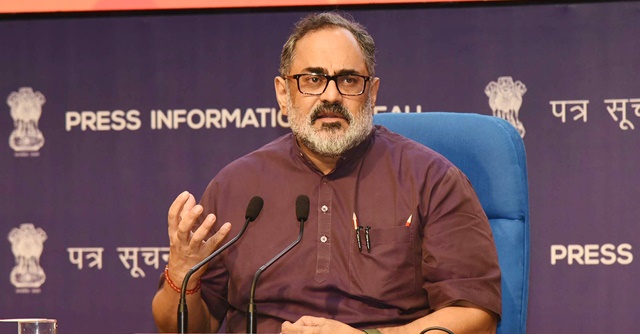
Govt announces $2 billion investment in Mohali's Semiconductor Laboratory


Union Minister Rajeev Chandrasekhar has announced a substantial boost in government investment during a semiconductor design event at IIT-Delhi on May 12. The government's commitment to the Semiconductor Laboratory (SCL) in Mohali has surged to an impressive $2 billion, marking a significant increase from the previously planned $1.3 billion allocation.
Furthermore, the government unveiled plans for the India Semiconductor Research Institute, set to serve as a centre of excellence. This institute will collaborate with esteemed institutions like IIT Delhi, IIT Chennai, and others, adopting a hub-and-spoke model to foster innovation.
Minister Chandrasekhar encouraged students at the event to explore and embark on ventures in cutting-edge fields such as semiconductors, quantum technology, and artificial intelligence. He commended today's students as the most fortunate generation in independent India's history.

Moreover, the government is developing a specialised semiconductor education curriculum for higher education institutions, designed in consultation with industry experts. This initiative aims to cultivate a globally competitive talent pool in semiconductor design within India.
Chandrasekhar also highlighted the emergence of approximately 27 semiconductor startups in the country, with the government's goal to accelerate this number to 100. To support this endeavor, the government has allocated around ₹1,100-1,200 crore for semiconductor design startups. Additionally, a substantial ₹76,000 crore production-linked incentive scheme has been introduced to attract chip manufacturing companies to establish fabs within India.
The Indian semiconductor market, with an initial valuation of around $23.2 billion, is on a trajectory to reach a substantial $80.3 billion by 2028. This impressive growth is driven by a robust compound annual growth rate (CAGR) of 17.10% during the forecast period.

Furthermore, in a strategic move to support semiconductor research and development (R&D) in India, the Ministry of Electronics and IT (MeitY) has unveiled an ambitious $10 billion investment plan under the India Semiconductor Mission (ISM). The investment encompasses capital infusion, incentives for manufacturing, and the Design Linked Incentive (DLI) scheme, which is geared towards aiding Fabless startups in creating products for both domestic and global markets.
In June, during Prime Minister Narendra Modi's visit to the United States, key defense and semiconductor production agreements were inked between the two nations. These agreements not only enhance India's defense capabilities but also cement its reputation as a dependable partner for cutting-edge technology collaborations.
